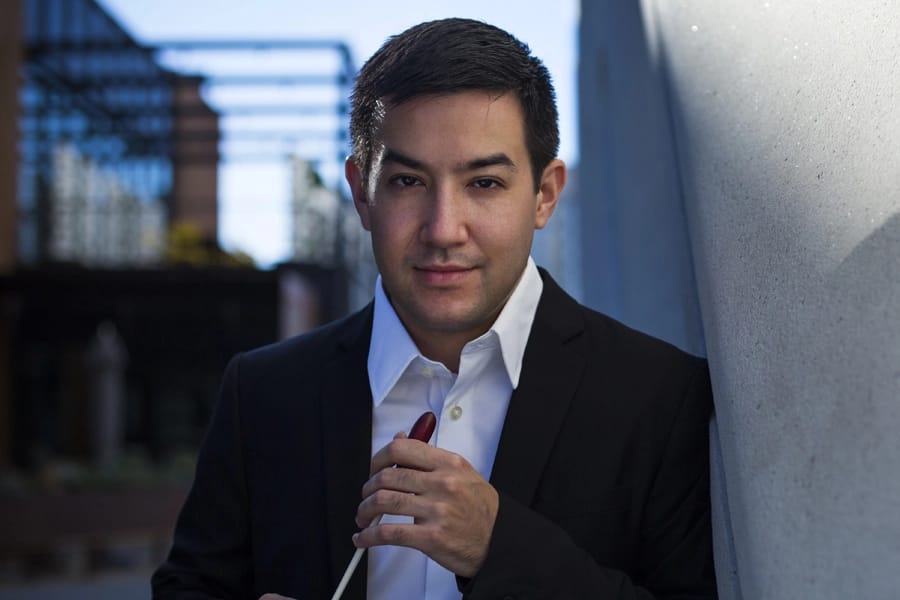
articles / North Bay
‘Tiers of Heaven’ at Santa Rosa Symphony

Francesco Lecce-Chong leads the Santa Rosa Symphony in music by Mozart and Mahler this weekend that the composers wrote soon after the death of a child. The stormy 40th Symphony of Mozart, he says, despite being very well known to audiences, is a challenging work to conduct and play well, and despite Mahler’s Fourth Symphony being one of the more manageable works in his output, is still Mahler, and epic.
There’s more information about the concerts at the Santa Rosa Symphony website.
This set of concerts, Lecce-Chong says, might be the most challenging program he’s ever conducted. “Sometimes people would look at a program like that and be, well, the Mozart’s so popular, everyone knows it, that’s pretty easy, and that’s why you would put this massive, hour-long journey of a symphony on the second half. Except that Mozart is incredibly difficult to play well, and I’m very passionate and very picky about how that works… Honestly, when I was growing up, when I was going to college, I’m thinking, ah, you know, Mozart, Haydn, you know, that’s like the little stuff. I want to do Mahler. And when I look at a program like this, I realize now how much work that Mozart Symphony is going to be.” This is the third set of concerts he has conducted as the Santa Rosa Symphony’s new music director, and didn’t program this season, given the announcement was made last spring, but Lecce-Chong is enjoying the opportunity (as he did when he led them in Beethoven’s Fifth earlier this season) to see what the ensemble can do with some of the giants of the standard repertoire. “I’m certainly glad that out of the few weeks that I was able to conduct this season, this would definitely be a program I needed to do with this orchestra. So that we have a chance to take this journey together on this piece. But it’s Mahler – he was one of the greatest conductors of all time, and he knows how to challenge every musician in the orchestra. And he knows how to challenge a conductor… On the surface, it’s one of the shorter Mahler symphonies. It’s the smallest Mahler symphony as far as orchestra size. And over all, the texture you could say is the lightest, but of course it’s Mahler, and so the theme of the piece is about as heavy, and thoughtful, and has the light and the dark, and all of his psychological ideas are all pressed into this piece.”






